- Details
- Category: Industry News
The American Bus Association (ABA) expressed thanks to the 120 Congressional Representatives and Senators who demonstrated their bipartisan support for the U.S. motorcoach industry by signing onto “Dear Colleague” letters to leaders of the U.S. House and Senate highlighting the need for federal assistance for the industry.
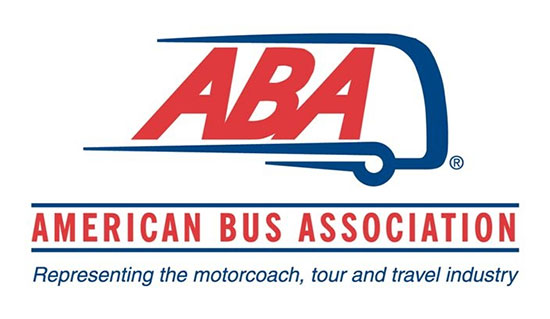
ABA, in conjunction with the United Motorcoach Association (UMA), held a Motorcoaches Rolling for Awareness rally in Washington, D.C., on May 13 to draw attention to the industry and its critical function within the economy. The event represented all 50 states and featured hundreds of participating companies. All told, more than 800 coaches rolled through the capital and garnered nationwide press coverage. Pictures and a recap of the event are available at busesmoveamerica.com.
Since the COVID-19 pandemic hit the U.S., more than 90 percent of the industry’s 36,000 buses are sitting idle and its nearly 100,000 strong workforce has been furloughed. According to the American Bus Association Foundation research, the industry will lose more than $8 billion dollars before Americans are clear to start traveling again.
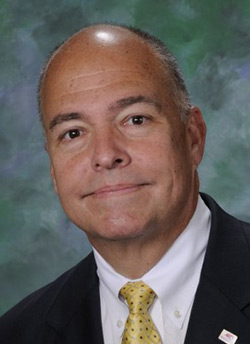 ABA President & CEO Peter Pantuso
ABA President & CEO Peter Pantuso
“As demonstrated at the National Bus Rally held last week in Washington, D.C., our industry needs direct assistance from Congress and soon or it will fail, leaving millions of Americans stranded without a means of transportation,” said ABA President & CEO Peter Pantuso. “These Representatives and Senators heard us and want to help—they care about their constituents, workers, and travelers alike, and understand the importance of our industry to average citizens across this country. They also understand that transportation needs are not a partisan issue but affect every walk of life—and that transportation needs to be up and running when this country is ready to get back to work.”
The House Dear Colleague letter was led by Reps. Albio Sires (N.J.-8) and John Katko (N.Y.-24). Sens. Steve Daines (R-Mont.) and Chris Van Hollen (D-Md.) led a similar letter in the Senate. The full list of those who signed can be viewed here.
“We give thanks and want to specifically recognize Sens. Daines and Van Hollen and Reps. Katko and Sires for their leadership on this bipartisan effort support,” said Pantuso. “We now look to them, as negotiations begin on the next legislative relief package, to fight for desperately needed funding to bridge our industry through this unprecedented crisis.”
Visit buses.org for more information.
[05.21.20]
- Details
- Category: Industry News
There continues to be small signs of optimism in the travel sector according to new research issued on May 20, 2020, by the business travel and meetings trade organization Global Business Travel Association (GBTA). Health and safety measures have always been a cornerstone of travel and are now of significant importance as the industry tries to gain momentum for recovery.
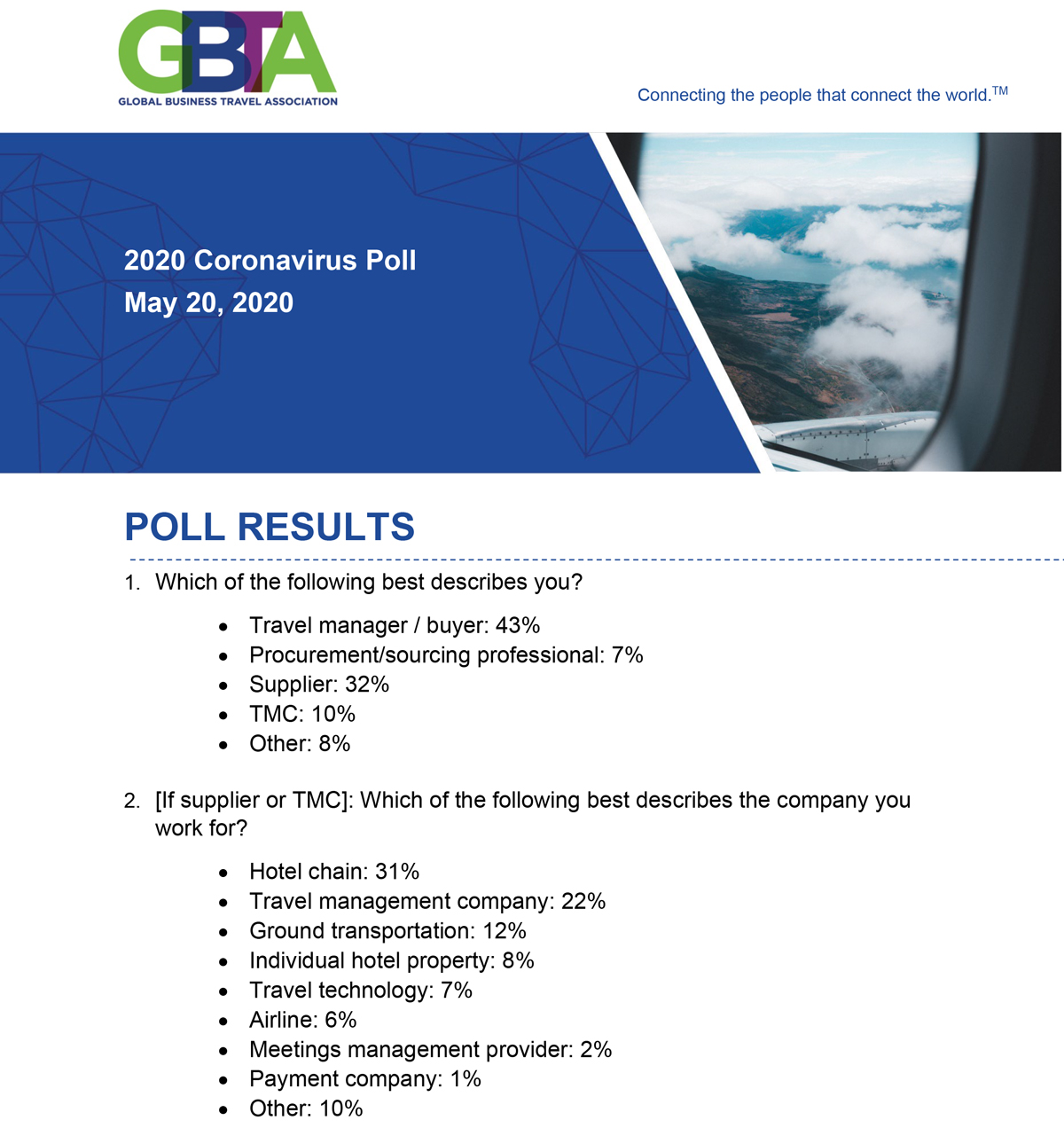
“People aren’t going to travel until they feel safe,” said GBTA CEO Scott Solombrino. “Our member companies want to see several health and safety steps taken at every stage of the travel process—from ground transportation to airlines to hotels. As restrictions across the globe begin to lift, small green shoots of optimism are sprouting in the industry with more than half (54%) of companies considering resuming all travel in the near future. That is a positive, albeit small, sign that we are finally headed in the right direction.”
To understand the coronavirus’s effects on business travel, GBTA conducted its seventh poll among membership between May 13 and 15, receiving 1,705 responses from GBTA member companies throughout the world. View the poll results.
Key Findings
Most GBTA member companies that report canceling or suspending most or all trips to a specific region/country plan to resume business travel in the new future or are considering resuming travel.
- One in four report their company plans to resume travel to the U.S. (28%) and/or Canada (24%) in the near future.
- Four in 10 report their company is considering resuming travel to the U.S. (44%), Europe (43%), and Canada (41%) in the near future, but currently do not have definitive plans about when travel will resume.
- Half (54%) are considering resuming all travel (regardless of country or region) in the near future, although they do not currently have definitive plans for when it will resume. In addition, only one in 10 (14%) report they do not plan to resume all travel in the near future.
Plans to Resume Business Travel
| Destination | Plan to Resume in Near Future | Considering Resuming in Near Future, But No Definite Plans | Do Not Plan to Resume in Near Future | Not Sure |
| China | 11% | 34% | 36% | 19% |
| Hong Kong | 9% | 36% | 35% | 20% |
| Taiwan | 9% | 35% | 36% | 21% |
| Asia Pacific (minus China, Hong Kong, and Taiwan) | 11% | 36% | 34% | 19% |
| Europe | 16% | 43% | 25% | 16% |
| Latin America | 11% | 37% | 32% | 19% |
| United States | 28% | 44% | 16% | 12% |
| Canada | 24% | 41% | 20% | 16% |
| Middle East/Africa | 9% | 36% | 35% | 20% |
| All International Travel | 10% | 42% | 29% | 19% |
| All Domestic Travel | 35% | 45% | 10% | 11% |
| All Travel | 15% | 54% | 14% | 17% |
GBTA member companies are strategic in their planning for a resumption of domestic business travel. Many plan to initially resume travel to specific states/regions and limit travel in other areas, while others plan to wait until they feel comfortable resuming travel anywhere in the country.
- One-third (35%) of U.S.-based member companies report they will resume travel in some states or regions but will continue to limit travel in other states or regions.
- Another four in 10 (43%) will wait until they feel comfortable resuming travel anywhere in the U.S.
- Half (50%) of non-U.S. members say they will wait until the feel comfortable resuming domestic business travel throughout the country, while one-third (36%) say they will allow travel in some areas or regions of the country but continue to limit travel in other regions of the country.
- These companies expect their employees will be willing to travel for the first six months after restrictions are lifted. A majority (62%) believe most or some employees will be willing to travel after restrictions are lifted.
- Many report they allow some essential business travel. Almost one in four (37%) allow for some essential business travel, while more than half (56%) have canceled or suspended all business travel.
Hotels/Lodging
When asked what steps hotels can take to help alleviate concerns about traveler health and safety, increase cleaning standards to exceed current cleaning protocols (80%), require employees to wear face masks (55%), provide additional staff training about COVID-19 sanitary practices and incident reporting (53%), increase communication about hotel sanitation practices (44%), require guests wear face masks in common areas (43%), and enforce physical distancing guidelines (43%) were most frequently cited.
Ground Transportation
GBTA members feel the ground transportation industry can take several steps to help alleviate concerns about their employee’s health and safety while traveling for business. Key actions include increase cleaning standards to exceed current standards (70%), provide hand sanitizer and disinfectant wipes to customers (68%), require drivers to wear face masks and gloves (58%), install a partition to separate the passenger from the driver (52%) and train drivers about sanitary practices (43%). Other actions ground transportation companies can take to help alleviate health and safety concerns include:
- Provide additional staff training about COVID-19 sanitary practices and incident reporting (36%)
- Require passengers to wear face masks and gloves (34%)
- Provide more communication and information concerning cleaning protocols (28%)
- Require drivers to stay in the driver’s seat and not assist with luggage or open the door (27%)
- Provide face masks and gloves to passengers (16%)
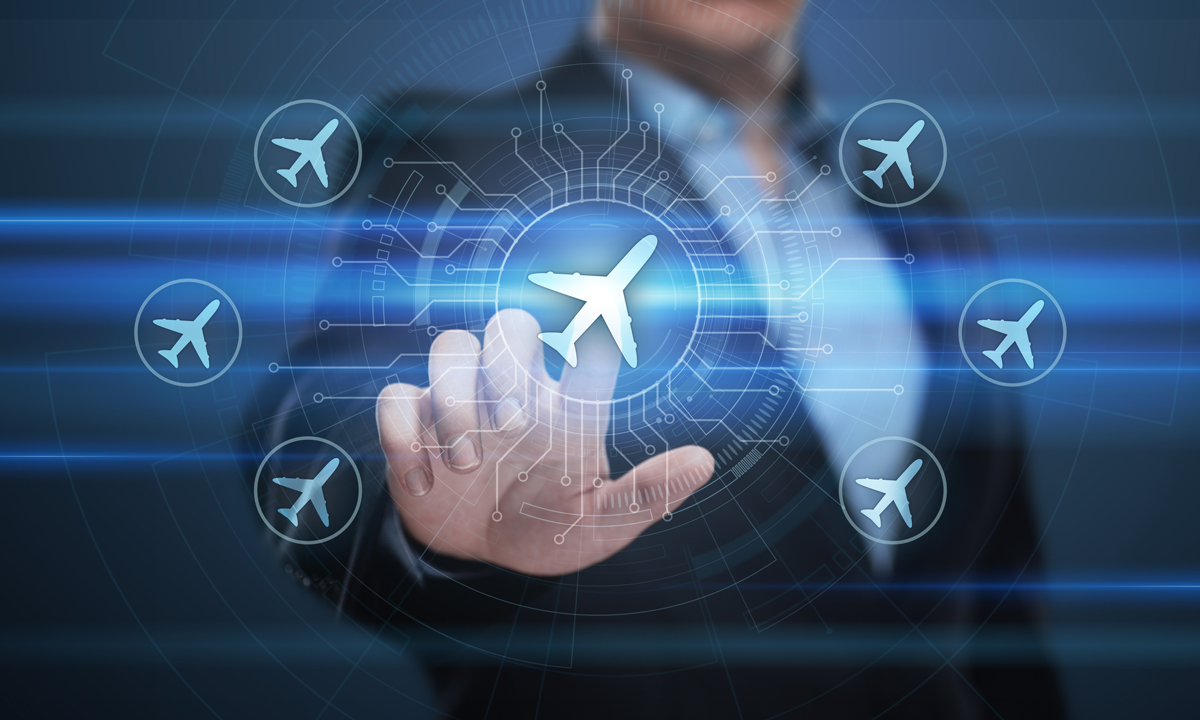
Air Travel
When asked what airlines can do to help alleviate GBTA member company concerns about traveler health and safety, key actions include: increase airplane cleaning standards to ensure every traveler touchpoint is sanitized before each flight (76%), require passengers to wear face masks (60%), keep the middle seats empty (59%), require employees wear face masks and gloves (52%) and provide all passengers with hand sanitizer and disinfectant wipes (47%). Other actions airlines can take to help alleviate health and safety concerns include:
- Provide additional staff training about COVID-19 sanitary practices and incident reporting (27%)
- Provide all passengers with face masks (23%)
- Suspend or reduce in-flight food and beverage service (17%)
What Will Make Companies Feel More Comfortable About Traveler Health and Safety
| Actions | Airlines | Hotel | Ground Transportation |
| 1 | Increase cleaning/sanitation protocols—76% | Increase cleaning standards—80% | Increase cleaning standards—70% |
| 2 | Require passengers wear masks—60% | Require staff wear masks—55% | Provide hand sanitizer and disinfectant wipes—68% |
| 3 | Keep middle seats empty—59% | Provide staff additional COVID-19 sanitary training—53% | Require drivers wear masks and gloves —58% |
| 4 | Require staff wear masks and gloves—52% | Increase communication about hotel sanitation practices—44% | Install partition between driver and passengers—52% |
| 5 | Provide hand sanitizer and disinfectant wipes—47% | Enforce physical distancing and require guests wear face masks in common areas—43% (each) | Train drivers on sanitary practices—43% |
Thinking about information needs as they pertain to supplier cleaning and sanitation practices, half (48%) of respondents feel they have enough information while one-third (36%) would like more. Only one in 10 (15%) say they do not have enough information. GBTA member companies in North America (51%) are more likely than member companies based in Europe (32%) to say they have enough information on supplier cleaning and sanitation practices.
Methodology
GBTA conducted a poll of its members across the globe from May 13-15, 2020. A total of 1,705 responses were received.
Visit gbta.org for more information.
[05.20.20]
- Details
- Category: Industry News
It was a much-needed message of unity, camaraderie, and strength as hundreds of operators worldwide tuned in to the National Limousine Association’s Facebook page on May 12 for the mammoth No Operator Left Behind (NOLB) Virtual Summit. The nearly five-hour session featured a half-dozen speakers and was moderated by NLA President Robert Alexander of RMA Worldwide and Bill Faeth of Limo University. At times sobering, often optimistic, but always enlightening, the NOLB Summit probed many aspects of travel and entertainment as operators attempt to safely navigate the next phases of the economy’s reopening. The event culminated with a message of hope and overall well-being—physical as well as mental—from two doctors who are on the frontlines of the COVID-19 crisis every day.

The event was sponsored by Grech Motors, Chosen Payments, Jaco Limousine, Limo & Bus Compliance, and Limo Anywhere.
“The one thing I think everyone is lacking—because they’ve been in lockdown so long—is patience. We all want the business to be back tomorrow, and what tomorrow looks like is what we’re all trying to figure out,” said Alexander during the event. “A key takeaway? There’s optimism.” He also added that people are seeing an uptick in reservations, a positive sign that the public is feeling more confident to once again venture beyond their homes.
If there was one constant throughout the Summit, it’s that every corner of the economy has been touched by this pandemic, albeit it in varying degrees, and every business owner is grappling with how to protect their team and clients for the foreseeable future. The industry can learn from what vertical markets are doing to improve our own response to safety measures, especially from those businesses that didn’t have the unexpected “benefit” of a shutdown and had to put novel safety protocols in place on the fly.
 Bill Faeth (left) and Robert Alexander (center) interview Roger Dow of the U.S. Travel Association
Bill Faeth (left) and Robert Alexander (center) interview Roger Dow of the U.S. Travel Association
Roger Dow of the U.S. Travel Association offered his snapshot of what’s happening to the vital travel sector at home. He prognosticated that our industry might actually have a leg up for a quicker recovery over other forms of transportation, including TNCs, because of the active and aggressive safety policies that operators are instituting. It was a sentiment that was echoed by Catherine Chaulet of Global DMC Partners and Angela Layton of the National Association of State Boards of Accountancy spoke about what the workplace might look like moving forward as more businesses see the benefit of employees working from home, as well as what would reassure their clients as they balance travel with their tolerance for risk—with clear communication from their travel partners. Alexander noted that the NLA is working on an SOP as a foundation for members to establish their own protocols.
Large-scale events in every state have been among the hardest hit, including sports and concerts, due to the restrictions on congregations. Stuart Ross of Red Light Management addressed how music events have been sidelined and what efforts the industry is taking to ramp up to a modified opening, although they have had some success with virtual events.
Sara McCall of Stunning and Brilliant Events, said that weddings are still happening, although many have been scaled down, offer different types of services (for example, plated dinners over a buffet), often include a virtual aspect, and new trends have been popular—yes, scented sanitizer stations are a thing. She sees the shift as an important but ultimately temporary measure until we are more comfortable where society is with the pandemic.
On a positive note, Jay Karen of the National Golf Course Owners Association, reported that golf courses had to pivot quickly to manage the crisis because many are open—and quite busy as more people are working from home and need an outlet. They’ve addressed everything from limiting the sizes of groups to spreading out tee times and even instituting touchless procedures wherever possible.
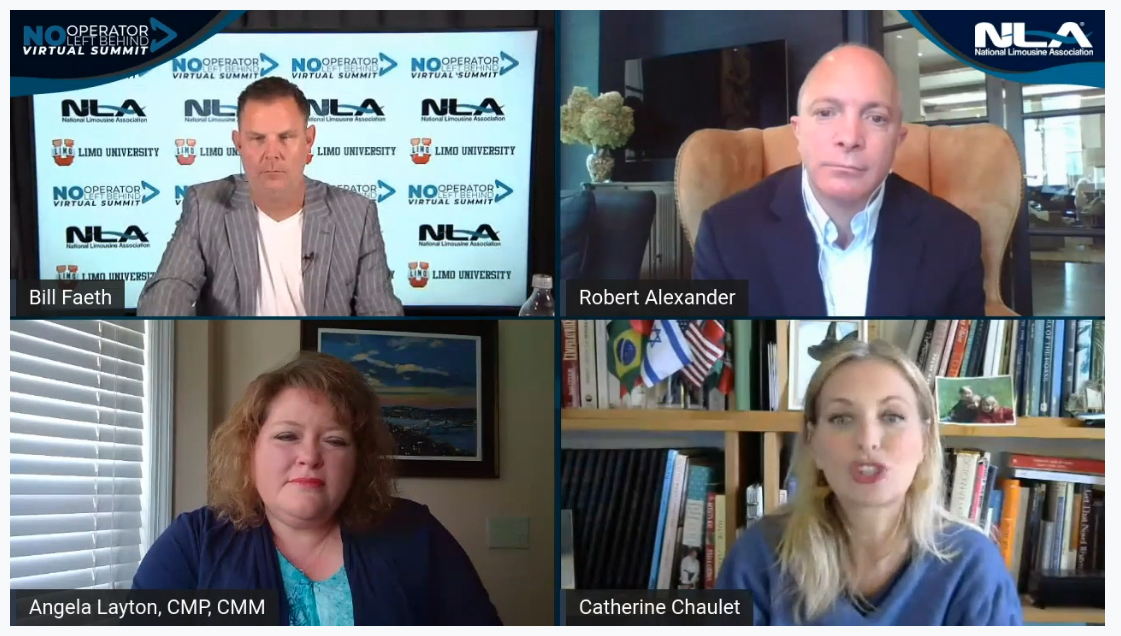 Guests also included Angela Layton of the National Association of State Boards of Accountancy (bottom left) and Catherine Chaulet of Global DMC Partners (bottom right)
Guests also included Angela Layton of the National Association of State Boards of Accountancy (bottom left) and Catherine Chaulet of Global DMC Partners (bottom right)
The final hour of the event was perhaps the most significant as Dr. James Doub of the University of Maryland and Dr. Lucy McBride of Foxhall Internists tackled the most immediate issues we are all facing with the pandemic: the fear of the unknown. Both addressed the imperative issues of staying physically healthy and protecting others from the spread of the virus, but also the tolls that it’s taken on mental health. They expressed confidence in the industry’s steps to operate safely by installing partitions, having the chauffeur and passenger wearing N95 masks (although less so on the use of gloves), liberally using hand sanitizer, and, of course, quarantining ill staff. Widespread testing and the possibility of a vaccine would be best.
A full recording of the NOLB Summit, complete with robust participation and real-time comments and questions from viewers, can be found on the NLA’s Facebook page.
Individual recordings can be found here:
Travel Industry Session featuring Roger Dow of the U.S. Travel Association
Meetings and Events Session featuring Catherine Chaulet of Global DMC Partners and Angela Layton of the National Association of State Boards of Accountancy
Recreation and Weddings Session featuring Jay Karen of the National Golf Course Owners Association and Sara McCall of Stunning and Brilliant Events
Live Entertainment Session featuring Stuart Ross of Red Light Management
Medical Industry Session featuring Dr. James Doub of the University of Maryland and Dr. Lucy McBride of Foxhall Internists
Visit the NLA’s COVID-19 response page for more information.
[05.15.20]

